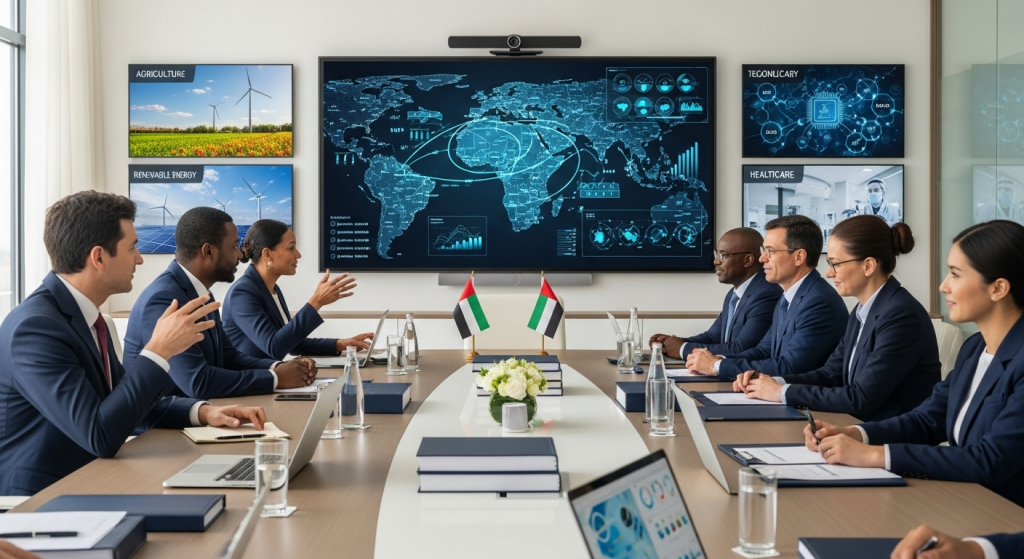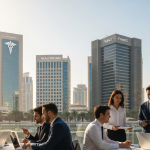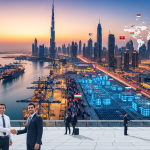The United Arab Emirates (UAE) is increasingly focusing on expanding its business horizons in Africa, a continent rich in resources and potential. Recent developments indicate a strategic push to enhance trade relations, foster partnerships, and explore investment opportunities across various sectors. This article delves into the latest initiatives, key sectors for investment, and the implications for businesses looking to tap into the African market.
Growing Trade Relations Between UAE and Africa
In recent years, the UAE has positioned itself as a vital trade hub between the East and West. With Africa emerging as a significant player in the global economy, the UAE is keen to strengthen its economic ties with the continent. According to the UAE Ministry of Economy, non-oil trade between the UAE and African nations reached approximately AED 50 billion in 2022, reflecting a 20% increase compared to the previous year.
Key Drivers of Trade Expansion
Several factors are driving this expansion:
- Strategic Geographic Location: The UAE’s location provides a gateway for African products to enter international markets.
- Diverse Economic Sectors: The UAE is diversifying its economy, focusing on sectors such as technology, renewable energy, and agriculture, which align with Africa’s needs.
- Investment in Infrastructure: UAE companies are investing in African infrastructure projects, enhancing connectivity and trade facilitation.
Key Sectors for Investment
As the UAE seeks to deepen its engagement with Africa, several sectors stand out as prime opportunities for investment:
Agriculture
Africa has vast arable land and a growing population, making agriculture a critical sector. The UAE has been investing in agricultural technology and practices to boost food security in Africa. Initiatives such as vertical farming and hydroponics are gaining traction, with UAE firms collaborating with local businesses to enhance agricultural productivity.
Renewable Energy
With abundant natural resources, Africa is poised to become a leader in renewable energy. The UAE, particularly through companies like Masdar, is actively investing in solar and wind energy projects across the continent. These investments not only contribute to sustainable development but also create job opportunities.
Technology and Innovation
The technology sector is rapidly evolving in Africa, with a surge in startups and innovation hubs. The UAE is looking to leverage its expertise in technology and digital transformation to support African entrepreneurs. Initiatives such as mentorship programs and funding opportunities are being established to foster innovation.
Healthcare
The healthcare sector in Africa is undergoing significant changes, with increasing demand for quality healthcare services. UAE healthcare companies are exploring partnerships to provide medical services, pharmaceuticals, and healthcare technology solutions. This collaboration aims to improve healthcare access and quality across the continent.
Recent Initiatives and Agreements
The UAE government has been proactive in establishing frameworks and agreements to facilitate trade and investment in Africa. Some notable initiatives include:
UAE-Africa Economic Forum
The UAE hosted the UAE-Africa Economic Forum in 2023, bringing together business leaders, policymakers, and investors from both regions. The forum focused on exploring trade opportunities, investment partnerships, and collaborative projects across various sectors.
Trade Agreements
In 2023, the UAE signed several bilateral trade agreements with African nations, aimed at reducing tariffs and enhancing trade facilitation. These agreements are expected to bolster trade volumes and create a more conducive environment for businesses.
Investment in Infrastructure Projects
The UAE has committed to investing in key infrastructure projects in Africa, including transportation, energy, and telecommunications. These investments are crucial for improving connectivity and facilitating trade.
Challenges and Considerations
While the prospects for business expansion in Africa are promising, several challenges need to be addressed:
- Regulatory Environment: Navigating the regulatory landscape in different African countries can be complex. Businesses must conduct thorough research and seek local expertise to ensure compliance.
- Market Understanding: Understanding local market dynamics, consumer behavior, and cultural nuances is essential for successful market entry.
- Infrastructure Gaps: While investments are being made, infrastructure gaps still exist in many regions, which can pose challenges for logistics and supply chains.
Conclusion
The UAE’s strategic push for business expansion in Africa presents significant opportunities for investors and businesses looking to tap into emerging markets. With a focus on key sectors such as agriculture, renewable energy, technology, and healthcare, the UAE is well-positioned to foster partnerships that drive economic growth in both regions. As trade relations continue to strengthen, businesses must remain adaptable and informed to navigate the evolving landscape effectively.
For more insights on investment opportunities and business strategies in the UAE and beyond, visit Persian Horizon.
Source: https://www.emirates247.com/business








